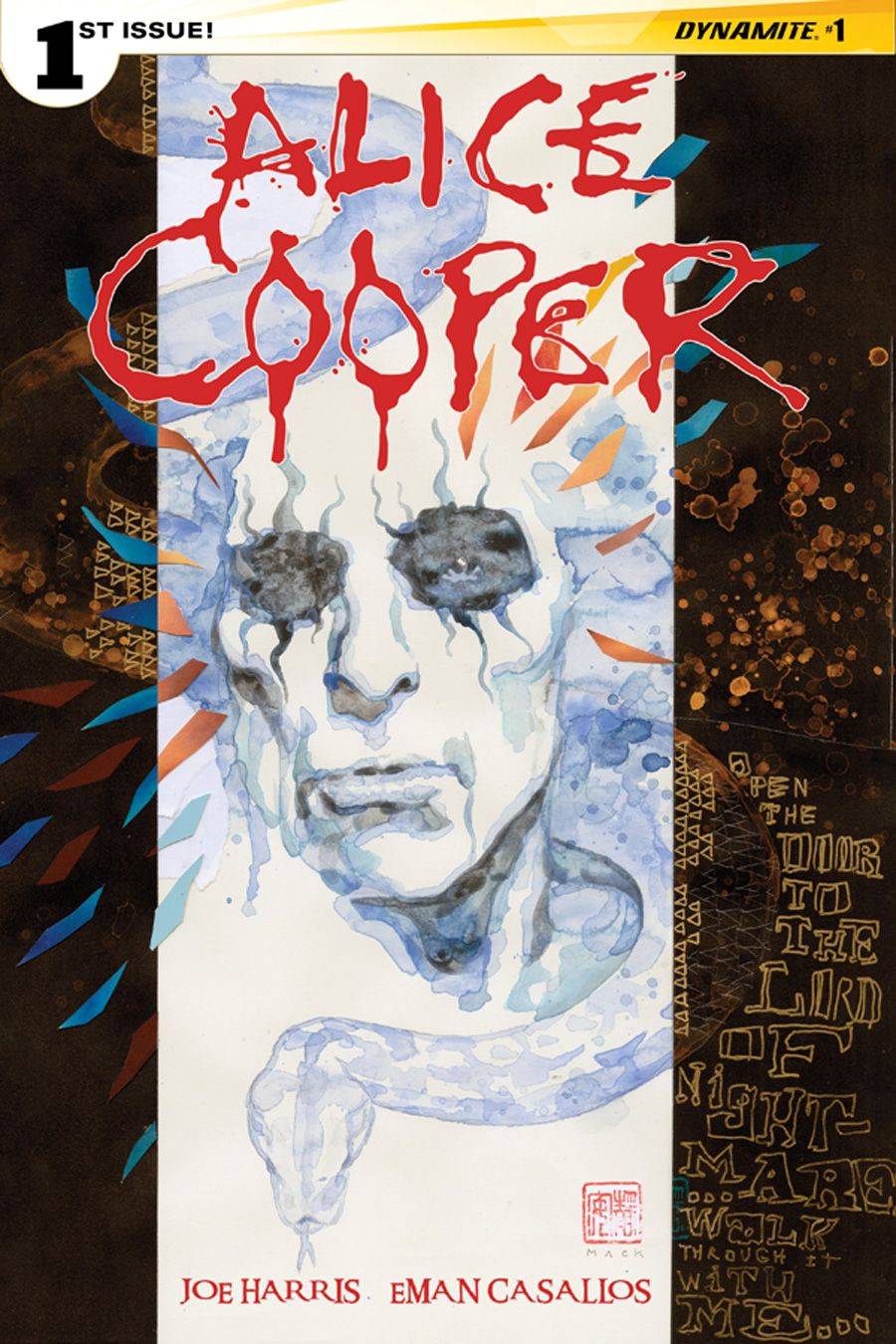"Alice Cooper" #1 by Joe Harris and Eman Casallos isn't the first comic book to feature the rock-n-roll icon, but it is the first to so deftly straddle the line between Cooper as a real-life personality and a mysterious, otherworldly figure. His past comic incarnations have ranged from the central character in an unauthorized biography to a supernatural showman, but Harris takes the unique approach of splitting the character into two different but connected personas, one firmly based in the real world but the other in a strange kind of dream realm. More unique still, Cooper isn't any kind of domineering, sinister character like one might expect; instead, he's a decidedly subjugated one that really isn't in control in this realm or the netherworld, at least initially.
The entire issue takes on an unexpected tone, in fact, by way of Harris' deliberately light-stepping story. There aren't any hangings, beheadings or live chickens ripped to bloody shreds like some might be looking for; instead, Harris uses a more subdued tactic that benefits the story, making it more of a fun affair than a gruesome tour through the Alice Cooper museum of shock-rock theater. The comic's other characters are stereotypical but lighthearted, which keeps the issue from getting bogged down in dreary, nightmarish scenarios. The hedonistic rock star manager Lucius Black typifies the kind of double-talking, exploitive shyster who coerces naïve and unwitting talent to sign deals with the devil, almost literally. Jordan James is the narcissistic, self-important boy band leader who lords over all, at least until one of his own idols walks into the room. It's almost as though Harris is looking to take a swipe at the music industry, but the function of these characters is more akin to establishing Alice's current place in the world, and beyond it, for that matter.
The issue's biggest stereotyped character is the unfortunate Robbie, a bullied kid with zero self-esteem who falls victim, once more, to a trio of local neighborhood scumbags. It's easy enough to sympathize with the kid, but the end result of Robbie playing an old and mysteriously procured and oddly durable Alice Cooper album is woefully predictable, especially to anyone who's seen a little known rock-n-roll film from 1986 called "Trick or Treat" which used the exact same premise. Harris also borrows something more visceral from that movie, though, by not taking his own story too seriously, an attitude that allowed such a movie, and this issue, to ultimately succeed. There's nothing terribly creative or original here, but Harris makes it fun by knowing that such a story can't be billed as something completely serious, yet avoids making it the laughable camp-fest that it could have become.
Casallos does the same thing artistically, by giving all the characters a look grounded in realism, even ol' Black Eyes himself. Real-world Alice looks like the grizzled, veteran rocker fans will recognize, and metaphysical Alice doesn't look all that different, keeping him recognizable and avoiding any kind of overly dark and over-the-top transformation. Black looks every bit the sleazeball that he is, James is rendered from the template of every teen idol crush from the past decade, and the shadowy, creepy-looking guy selling records at a garage sale isn't that much of a stretch from some of the strange characters who really do frequent garage sales.
The first thing readers will see, at least those who purchase the standard cover, is a typically gorgeous cover by David Mack, rendered in his usual watercolor style. Alice Cooper is in washed out greytones, framed by a dark border with characteristically cryptic and abstractly-lettered wording that gives a taste of what's inside, even if the style has nothing in common with Casallos' interiors. In the same kind of amusing vein as the very first "Marvel Comics Super Special" that featured KISS all these years ago, "Alice Cooper" #1 is an enjoyable intro that will be best enjoyed by fans of the tenured rocker, but is plenty readable to others, as well.

